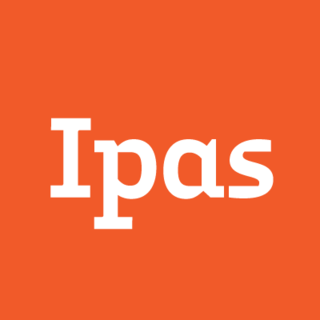Related Research Articles
Abortion is the termination of a pregnancy by the removal or expulsion of an embryo or fetus. An abortion that occurs without intervention is known as a miscarriage or "spontaneous abortion"; these occur in approximately 30% to 40% of all pregnancies. When deliberate steps are taken to end a pregnancy, it is called an induced abortion, or less frequently "induced miscarriage". The unmodified word abortion generally refers to an induced abortion. The reasons why women have abortions are diverse and vary across the world. Reasons include maternal health, an inability to afford a child, domestic violence, lack of support, feeling they are too young, wishing to complete education or advance a career, and not being able or willing to raise a child conceived as a result of rape or incest.
Obstetrics and gynaecology is the medical specialty that encompasses the two subspecialties of obstetrics and gynecology. The specialization is an important part of care for Women's health.

Family planning is the consideration of the number of children a person wishes to have, including the choice to have no children, and the age at which they wish to have them. Things that may play a role on family planning decisions include marital situation, career or work considerations, financial situations. If sexually active, family planning may involve the use of contraception and other techniques to control the timing of reproduction.
Reproductive rights are legal rights and freedoms relating to reproduction and reproductive health that vary amongst countries around the world. The World Health Organization defines reproductive rights as follows:
Reproductive rights rest on the recognition of the basic right of all couples and individuals to decide freely and responsibly the number, spacing and timing of their children and to have the information and means to do so, and the right to attain the highest standard of sexual and reproductive health. They also include the right of all to make decisions concerning reproduction free of discrimination, coercion and violence.
Dilation and evacuation (D&E) is the dilation of the cervix and surgical evacuation of the uterus after the first trimester of pregnancy. It is a method of abortion as well as a common procedure used after miscarriage to remove all pregnancy tissue.

A self-induced abortion is an abortion performed by the pregnant woman herself, or with the help of other, non-medical assistance. Although the term includes abortions induced outside of a clinical setting with legal, sometimes over-the-counter medication, it also refers to efforts to terminate a pregnancy through alternative, potentially more dangerous methods. Such practices may present a threat to the health of women.

Sexual and reproductive health (SRH) is a field of research, health care, and social activism that explores the health of an individual's reproductive system and sexual well-being during all stages of their life.
Conscience clauses are legal clauses attached to laws in some parts of the United States and other countries which permit pharmacists, physicians, and/or other providers of health care not to provide certain medical services for reasons of religion or conscience. It can also involve parents withholding consenting for particular treatments for their children.
MSI Reproductive Choices, named Marie Stopes International until November 2020, is an international non-governmental organisation providing contraception and safe abortion services in 37 countries around the world. MSI Reproductive Choices as an organisation lobbies in favour of access to abortion, and provides a variety of sexual and reproductive healthcare services including advice, vasectomies, and abortions in the UK and other countries where it is legal to do so. It is based in London and is a registered charity under English law.
Reproductive justice is a critical feminist framework that was invented as a response to United States reproductive politics. The three core values of reproductive justice are the right to have a child, the right to not have a child, and the right to parent a child or children in safe and healthy environments. The framework moves women's reproductive rights past a legal and political debate to incorporate the economic, social, and health factors that impact women's reproductive choices and decision-making ability.
Unintended pregnancies are pregnancies that are mistimed, unplanned or unwanted at the time of conception.
The following outline is provided as an overview of and topical guide to obstetrics:

Ipas is an international, non-governmental organization that seeks to increase access to safe abortions and contraception. To this end the organization informs women how to obtain safe and legal abortions and trains relevant partners in Africa, Asia, and Latin America on how to provide and advocate for these.

Linda Prine is an American family physician, author, professor, consultant, cycling advocate, non-profit founder, academy chair, health care director, fellowship director, and residency teacher best known nationally for her award-winning work as a reproductive rights and universal health care activist. Prine promotes making abortion part of family health care. She is the medical director of the Reproductive Health Access Project, of which she is a co-founder.
Francine Coeytaux, founder of the Pacific Institute for Women's Health, is an American-based French public health specialist and abortion rights activist who has developed and evaluated family planning and reproductive health programs. She is known for her work on comprehensive reproductive health services, abortion and new reproductive technologies. She was an Associate at the Population Council in New York City where she started an international program to address the problem of unsafe abortion, collaborated on the public introduction of Norplant and RU 486, and helped develop reproductive health activities in Sub-Saharan Africa.
Abortion in Uganda is illegal unless performed by a licensed medical doctor in a situation where the woman's life is deemed to be at risk.
Paul D. Blumenthal is an American physician, researcher, cervical cancer prevention advocate, and abortion provider who is certified in obstetrics and gynecology. He is known for his cervical cancer, abortion, and contraception research. He is also known for his commitment to international women’s health—evidenced by his contribution to public health initiatives in over 30 countries.

Abortion in Kenya is prohibited with the exception of certain circumstances including danger to the life and health of the expectant mother, and rape. Unsafe abortions are a major cause of deaths and health complications for women in Kenya.

The Society of Family Planning (SFP) is an international non-profit professional organization established in 2005 specializing in "abortion and contraception science" composed of physicians, nurses, sociologists, public health practitioners and trainees in these fields. The majority of member physicians include specialists of obstetrics and gynecology, family medicine, and adolescent medicine.

2022 Michigan Proposal 3, the Right to Reproductive Freedom Initiative, also known as Reproductive Freedom for All, was a citizen-initiated proposed constitutional amendment in the state of Michigan, which was voted on as part of the 2022 Michigan elections. The amendment, which passed, codified reproductive rights, including access to abortion, in the Constitution of Michigan.
References
- ↑ Evans, Suzy (30 July 2019). "Betty Gilpin, Ali Stroker and More Perform at Voice for Choice Gala". The Hollywood Reporter. Retrieved 2019-11-11.
- ↑ "Reproductive Health Access Project 2016-2017 Annual Report" (PDF).
- ↑ Solis, Marie (2019-07-24). "I Learned How to Do an Abortion on a Papaya". Vice. Retrieved 2019-11-11.
- ↑ Racklin, Meghan (22 January 2019). "The New Abortion Underground Starts With Information". Glamour. Retrieved 2019-11-11.
- ↑ "About Papaya Workshop". Papaya Workshop. Retrieved 2019-11-11.
- ↑ Srinivasulu, Silpa; Maldonado, Lisa; Prine, Linda; Rubin, Susan E. (2019-09-01). "Intention to provide abortion upon completing family medicine residency and subsequent abortion provision: a 5-year follow-up survey". Contraception. 100 (3): 188–192. doi: 10.1016/j.contraception.2019.05.011 . ISSN 0010-7824. PMID 31150603.
- ↑ Pierce, Carrie; deFiebre, Gabrielle; Prine, Linda (2015-06-01). "Employment Accommodation Assessments for Pregnant Patients". American Family Physician. 91 (11): 750. ISSN 0002-838X. PMID 26034846.
- ↑ "Publications & Press". Reproductive Health Access Project. Retrieved 2019-11-11.
- ↑ "Staff". Reproductive Health Access Project. Retrieved 2019-11-11.
- ↑ "Linda Prine | Mount Sinai - New York". Mount Sinai Health System. Retrieved 2019-11-11.
- ↑ "Lisa Maldonado - SheSource Expert - Women's Media Center". www.womensmediacenter.com. Retrieved 2019-11-11.
- ↑ "Ruth Lesnewski | Mount Sinai - New York". Mount Sinai Health System. Retrieved 2019-11-11.